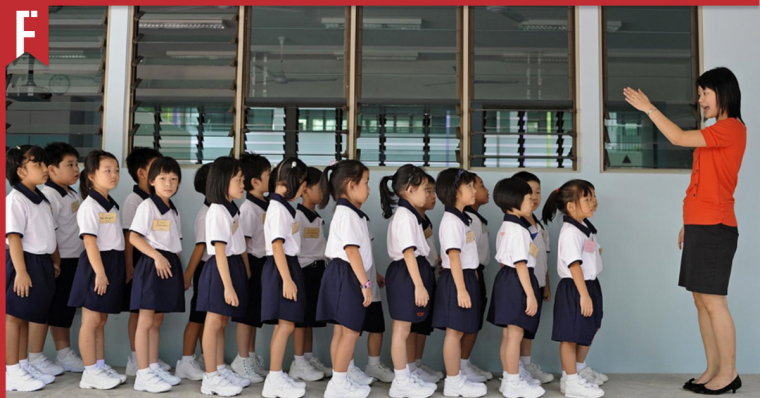
In March 2022, the education ministry introduced a special four-week transitioning programme for students entering primary one.
Because students have been learning through online these past couple of years, a transition to a new environment and having physical classes may come as a shock to them. They’d have to be able to learn basic etiquette on top of learning how to read and write. So practicing being prepared to handle whatever primary one throws their way is a great start.
I’m honestly all for this. It’s easy to forget that kids need to be taught to do “normal” things. They learn by observation, sure, but with two years at home and their only social interaction being with their family members, it’s easy to forget how different other people are. So yeah, why not learn to adapt first?
Kids These Days…
Back when I was a teacher, my school used to make new potential primary one students take admission tests to decide whether or not they’d be fit to enter the designated grade. I was always in charge of marking the papers after the kids were done and boy do these kids have a journey to go through.
We weren’t usually allowed to help the students since it would alter the results of their tests with the exception of clarifications, of course. But sometimes, the “ala kesiannya dia” element comes to play and you just can’t help yourself but give them a little nudge, you know.
What I learned from a lot of the tests was that there were a lot of children who surprisingly cannot spell. It’s not alarming except for the fact that these are normal sight words (words that appear very often in sentences and repetitive in everyday life) like “mother” and “cat”. Words that are supposed to have been taught in kindergarten.
There are even a huge number of children who don’t even know their ABC’s.
Troubling? Yes, Indeed
Even now, as a tuition teacher who practices these tests, it’s very apparent that there are kids who are unfamiliar with letters and numbers. You can argue the fact that it was because they’ve been at home during the pandemic and that online classes aren’t as effective when it comes to preschoolers. Yes, I agree with you to a certain extent, but I would also like to point out another factor that could have helped your children learn a little more — your engagement with them.
You mean to tell me that you’ve been at home the entire time with your children, (albeit you work from home, that’s understandable), yet you can’t find the time to sit down with them and teach them a little bit about letters and numbers?
I’m sorry, but being busy isn’t a valid excuse to neglect your child’s education.
On top of not knowing how to read, write and count, some children seem to have no idea of how to act in a public setting too.
Why would you let them go off on their own when you haven’t taught them how to behave around other people?
So if you’re a parent and your kid’s going into primary one soon, here’s a few things you should make sure they know and understand before you leave them to fend for themselves.
1. Knowing Their ABC’s And Sight Words
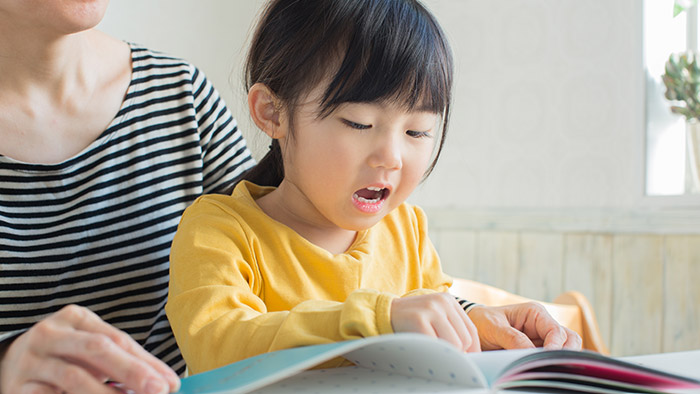
Learning alphabets and sight words are something that needs to be taught. Like holding a pencil, which is also coincidentally a very important skill to develop before going to school, yet a lot of kids can’t seem to hold a pencil properly.
Let’s not count the kids that have a learning disability like dyslexia, because they’re struggling for a whole different reason. However, it needs to be said that kids without learning disabilities shouldn’t have any excuse as to why they don’t know how to read and count.
Teaching your child to read while they’re still young helps them develop a familiarity towards phonetic sounds. That would then in turn help them understand and be able to recognise and sound out other words.
My nephew who just turned six keeps asking me the meaning of random words. I thought he heard it from somewhere but apparently, he reads them from sign boards and posters. It’s good enough that he pronounces them correctly, now all that’s left is to fill in the definition blank.
2. Learn To Count Until 100
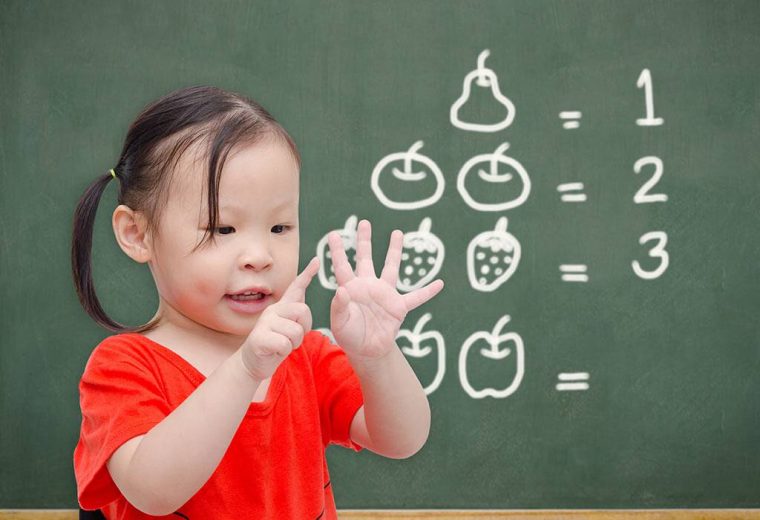
This might seem like overkill to you but learning how to count until 100 is part of the primary one syllabus.
You also basically learn the timetable in primary one, you know when you count in 2s, 5s and 10s? Kids these days are so advanced. Or has this been a thing that’s happened since the early ages? I seriously forgot about what happened when I was in primary one. All I remember was pigtails and yelling.
Why does a six year old need to count so high, you ask? Well, simply put, recognising numbers is the first step into getting used to mathematical concepts. Once they get the hang of the numbers and learn to add smaller ones, it’ll be easier to expand their math abilities in the future. Sooner or later, they might even be the ones to correct your miscalculations. I’m just sayin’.
Also, because the activities in their first grade maths classes are going to ask them about word problems and such, they’re going to have to know how to count before they can tackle those kinds of questions.
3. Learn To Use The Bathroom
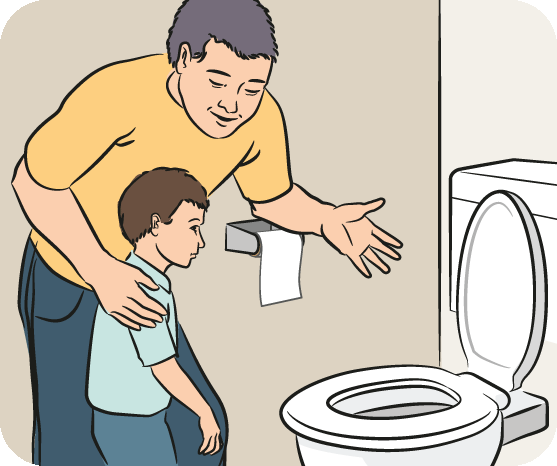
Toilet training is also something that needs to be enforced by parents. Your kids can’t come to school with diapers on, okay.
Some children get too comfortable with how they use the bathroom at home and forget that when they go to school, they’ll have to share the bathroom with their classmates. Or that there are certain bathroom etiquettes and rules that are different from when they’re at home.
There’s a lot of stories we hear from kids about their first day of school and a lot of them were initially funny but then when you think about it, it’s kind of sad too. Some kids don’t flush after they use the bathroom, or they go to the bathroom on the floor. Some don’t even mention that they want to go to the bathroom and just relieve themselves in the class. Ain’t that a great first day story for you.
It can be said that children are potty trained at the ripe old age of two to three years old but there are certain kids who are late bloomers. But alas, first grade won’t wait for them to bloom before shoving newfound responsibility in their faces.
So please, remember to teach your kids the etiquette of going to the bathroom before sending them to school.
4. Learn To Clean Up After Themselves
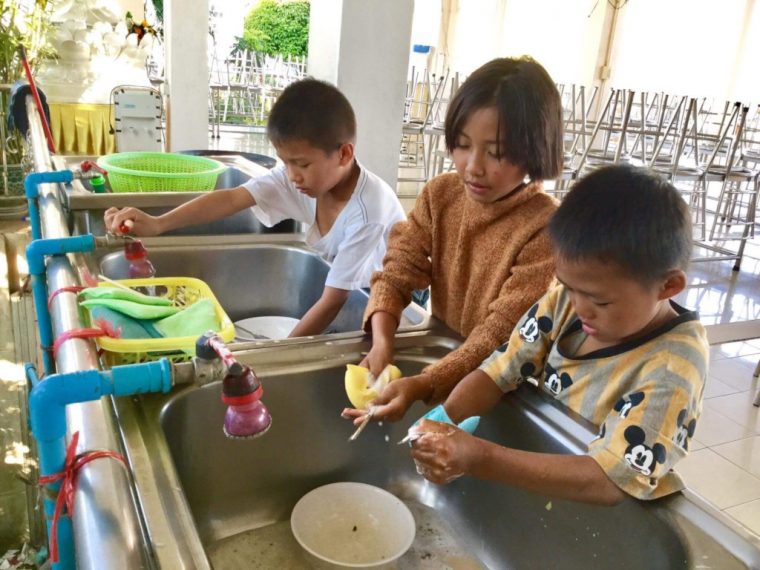
Teach your kids to clean up after themselves at an early age so that when they reach primary one, they wouldn’t have to be clueless and get punished for not putting their trash in bins and leaving a mess in the cafeteria.
After they finish eating, they should be able to clear their table and put their plates at the designated area available.
It’s no harm to be clean. No one wants sticky handed children running around and getting bits of food and trash everywhere. Besides, it’s a good practice to do at home as well so that your child knows to keep themselves clean all the time. And it’s a useful skill to hone for the future when your child is older.
Parents, you don’t expect the teachers to clean up after your children forever, do you?
However, teachers should also set an example to the students on how to clean up after themselves if they’re unsure of how to do it. Then next time, when they’re done with their food, they would know where to place their garbage and dirty plates.
Kids learning to clean themselves can also help prevent certain diseases like hand-foot-mouth disease from spreading. A simple practice of washing your hands can go a long way, kids.
5. Learn To Follow Instructions
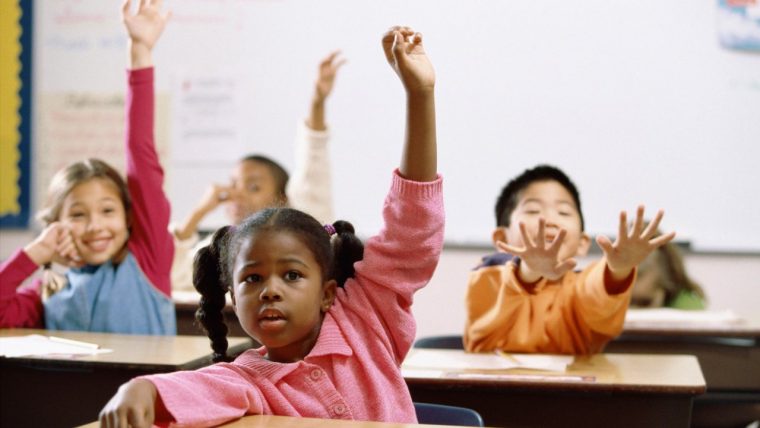
Beratur, stand up, sit down, keep quiet, those are basic instructions that teachers will throw around during class.
You can always practice these instructions with your kids. It’s just like a nudge for them to be able to comprehend what the teacher wants them to do.
You can also teach them that they should raise their hands when they want to ask a question, never interrupt their teachers or their friends when they’re speaking and to always use polite words. The last one should be simple. But I’ve heard how parents talk to their children at home nowadays and the languages they use could be more appealing.
So set an example for your kid by asking for things nicely, learning to listen and overall being attentive to others.
Help Them Out, For Their Future
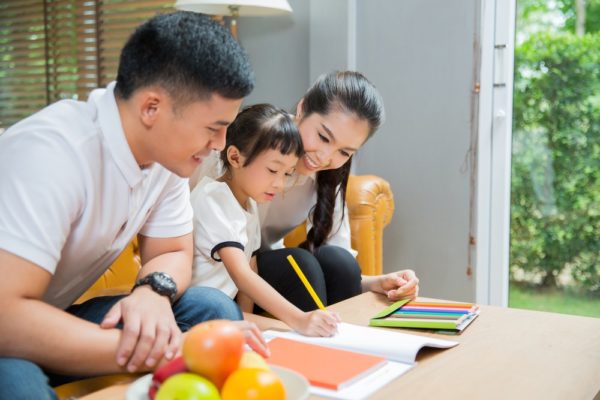
Sending your kids off to school is already great. You’re doing amazing, sweetie. But you have to also remember to do your part in brushing up on what they learned in school.
It’s not just, “I send you to school, you learn what?” and “Hari-hari pergi sekolah tak belajar apa-apa ke?”
Hello, you also patut ajar la anak you sikit. Takkan semua cikgu je nak buat?
Teachers only get your kids for six to seven hours tops at school on weekdays. The rest is all on you, buddy, This is a joint effort.
So don’t just put the full responsibilities on the teachers. Play your part in helping your child learn, either about etiquette or something else that’s educational. After all, with all that they’ve been through in the pandemic, we don’t want our kids to be left behind again, do we?
Back to School Blues: The Challenges Facing Malaysian Students Today









